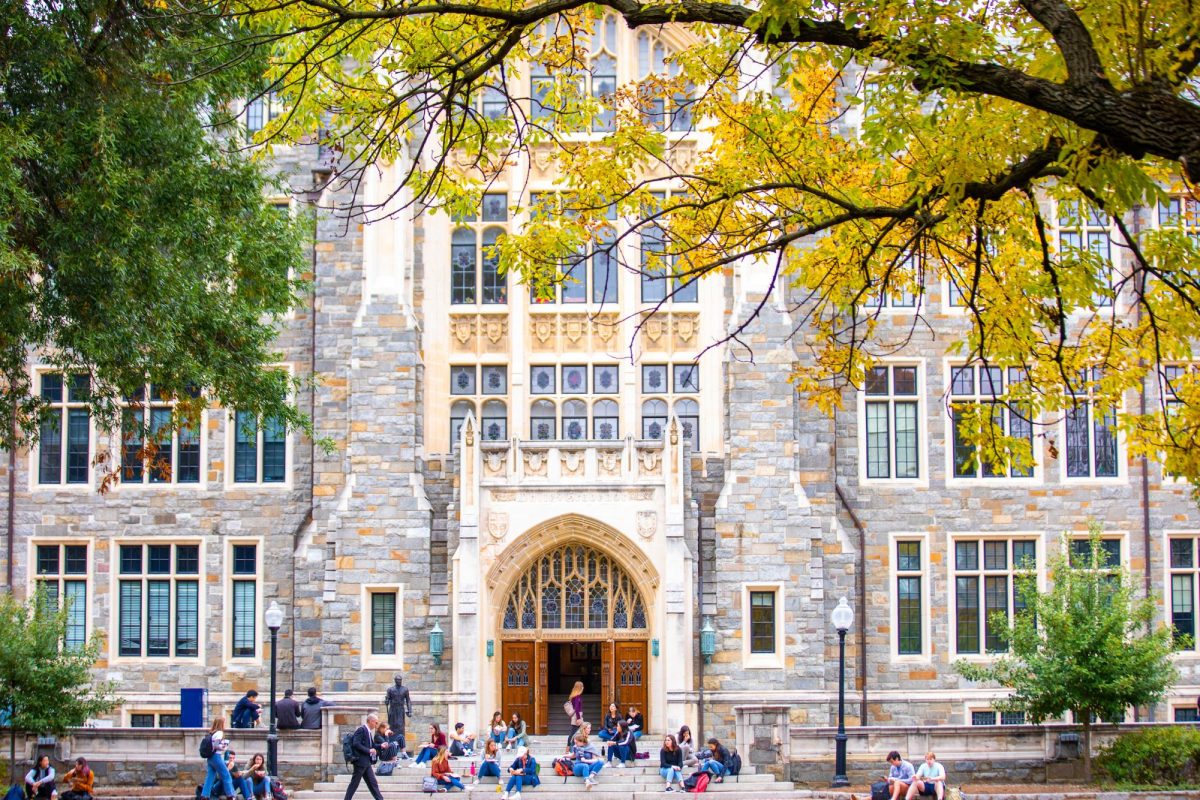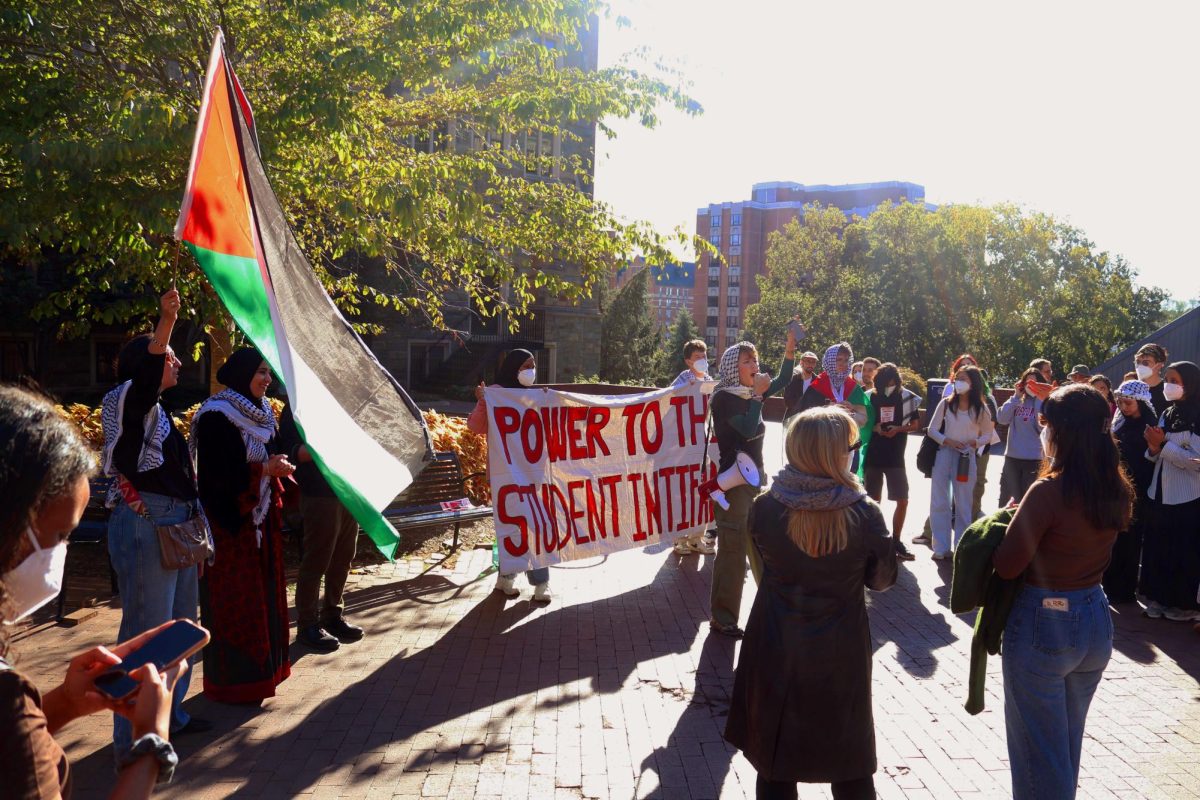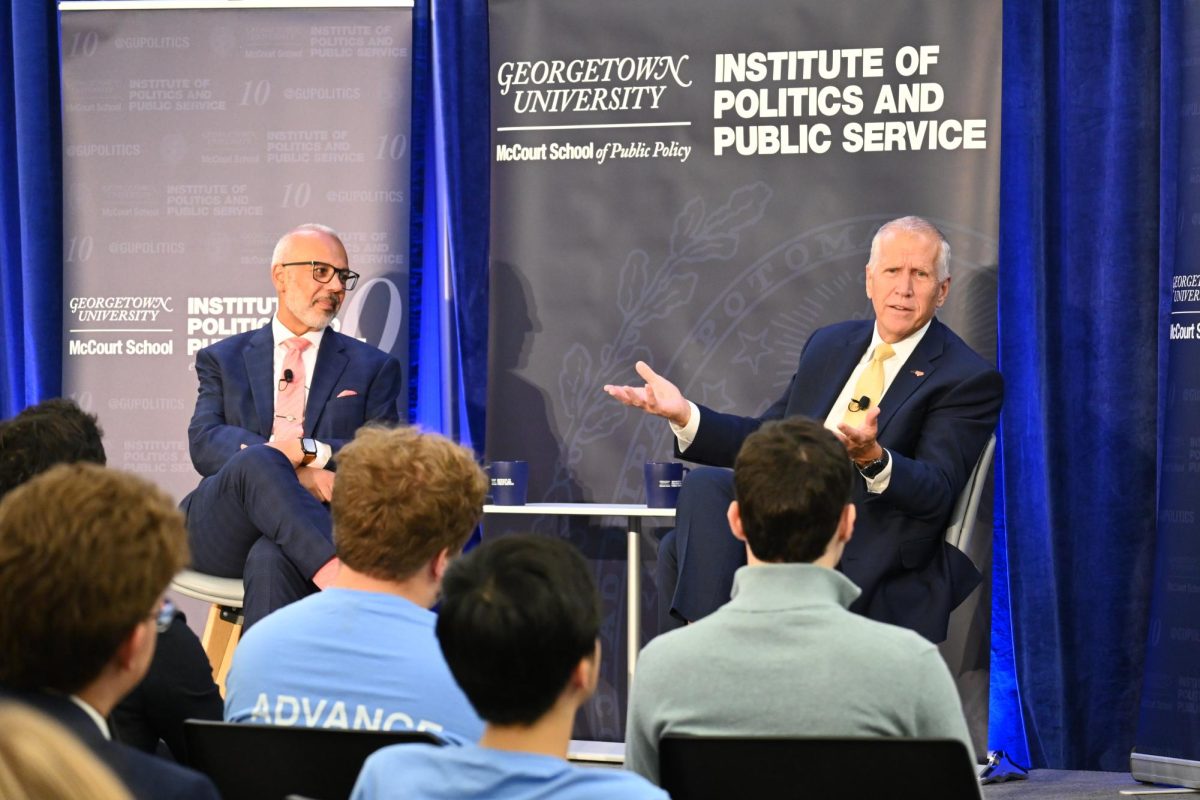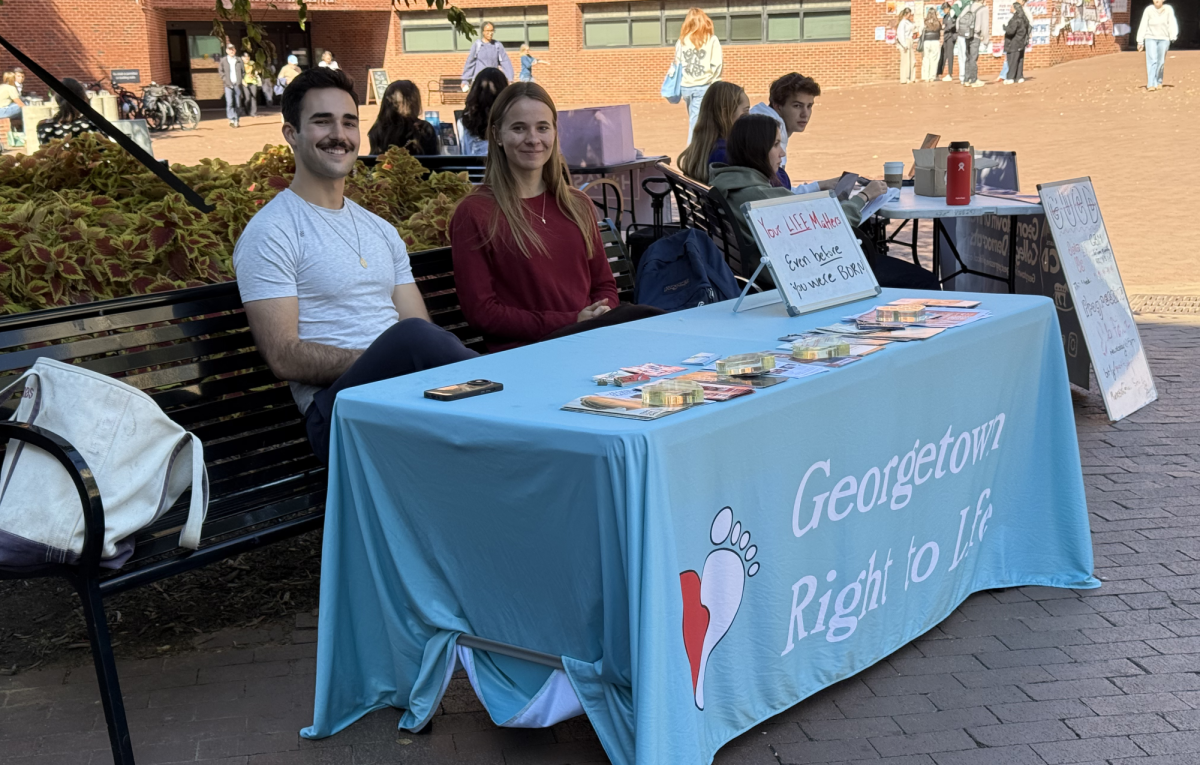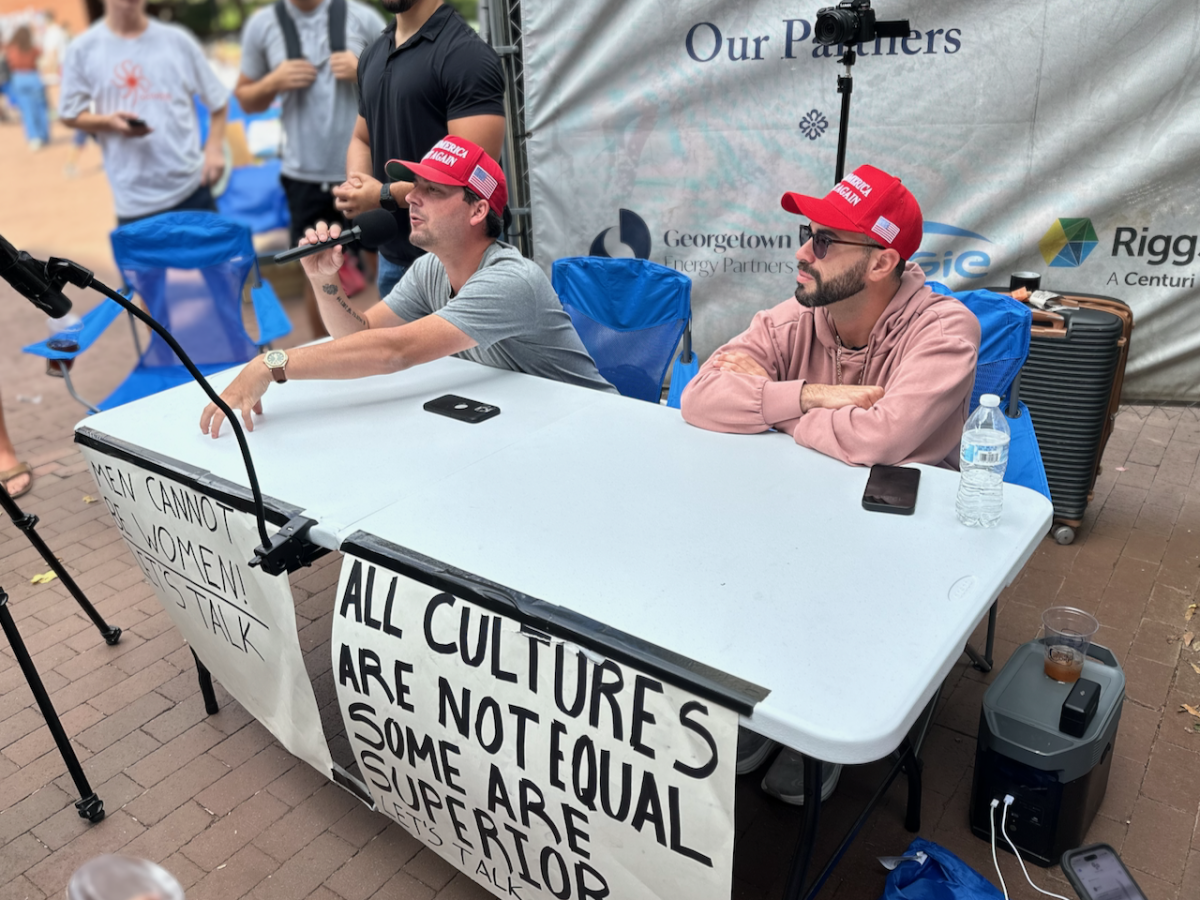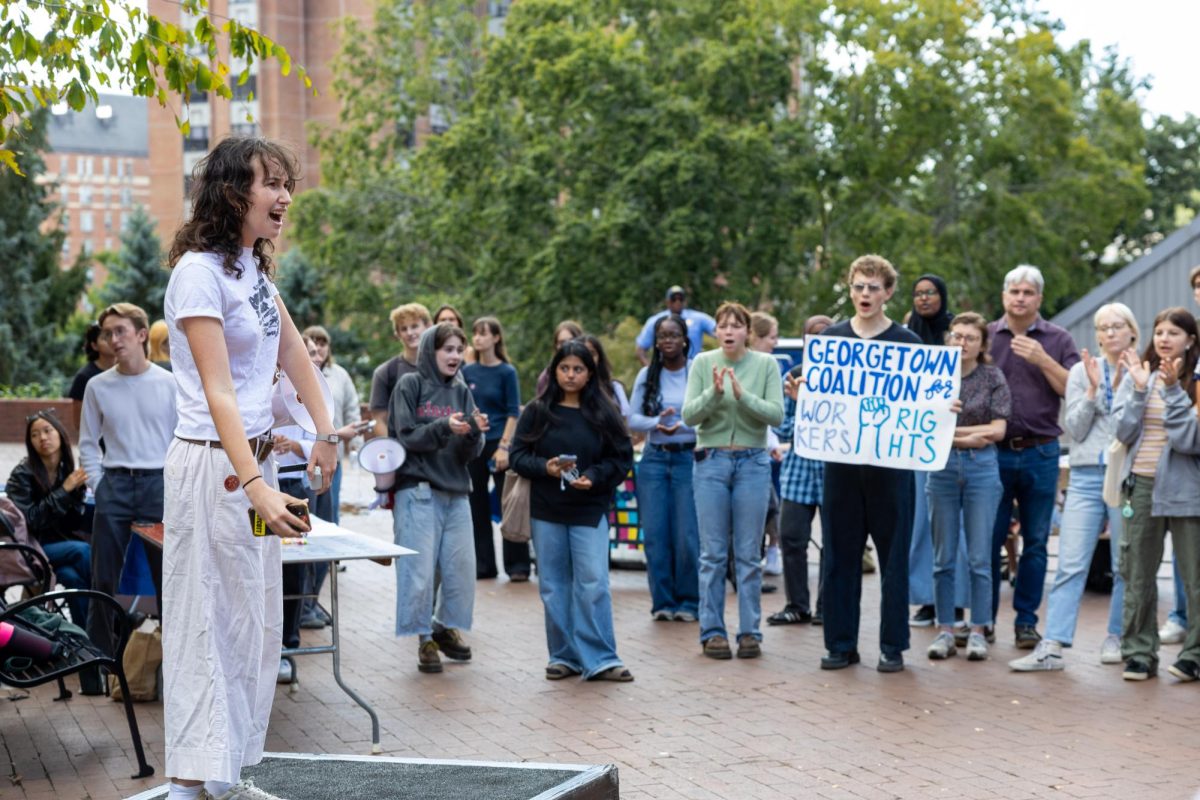Two Georgetown University institutes filed a lawsuit on behalf of 27 religious denominations and associations against the revocation of policies which protected places of worship from immigration raids under the administration of President Donald Trump.
The U.S. Department of Homeland Security (DHS) announced Jan. 20 that immigration officers would be able to enter schools, health care facilities and places of worship to conduct raids, rescinding a policy of the administration of former President Joe Biden which considered these “sensitive locations” protected from DHS intervention. The suit argues that this repeal impedes worshippers’ right to practice religion without fear, violating the First Amendment and federal law.
The two Georgetown institutes involved are the Center for Faith and Justice (CFJ), which centers a religious approach in combating inequality, and the Institute for Constitutional Advocacy and Protection (ICAP), a Georgetown University Law Center organization that advocates for individual rights and democracy.
Jim Simpson, the executive director of the CFJ who spearheaded the organization’s efforts on the lawsuit, said the policy contradicts the U.S. Constitution.
“The First Amendment to the Constitution, which has been in place since 1791, protects Americans’ freedom of speech, freedom of religion, freedom of assembly, and I think all three of those are under attack when armed ICE agents are going into houses of worship,” Simpson told The Hoya. “I think a lot of people of faith — Christians, Jews, Muslims, I think other faiths as well — a core tenet to their beliefs is that we are called to treat everyone with dignity, respect, love, compassion, empathy and care.”
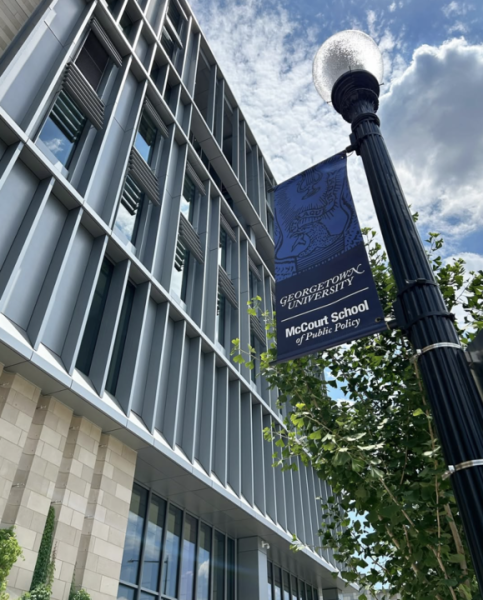
Kelsi Corkran, the plaintiffs’ lead counsel and ICAP’s Supreme Court director, said in a Feb. 11 press release that the lawsuit seeks to protect the right to practice religion regardless of documentation status.
“Plaintiffs represent millions of Americans across dozens of denominations rooted in the Jewish and Christian faiths,” Corkran said in the press release. “They have come together to file this suit because their scripture, teaching, and traditions offer irrefutable unanimity on their religious obligation to embrace and serve the refugees, asylum seekers, and immigrants in their midst without regard to documentation or legal status.”
The 27 denominations listed as plaintiffs in the suit represent millions of people and tens of thousands of places of worship. In addition to arguing that the new immigration policies will incite fear for worshippers, the lawsuit asserts that they interfere with other services at places of worship, such as meal programs and homeless shelters.
Kathleen Bonnette is the CFJ’s academic program manager, an adjunct lecturer in theology at Georgetown and a Catholic theologian. Bonnette said multiple denominations of Christianity affirm the notion that every person should be free to worship without fear.
“In our faith tradition, we hold that all human beings have dignity first of all, and so that means that every human being is a reflection of God and the divine,” Bonnette told The Hoya. “So it’s really important to be able to practice our faith in a way that invites the participation of every person who wants to participate, and without fear or arbitrary limitations.”
“Christ calls us to welcome a stranger, and that’s an absolutely fundamental aspect of our faith tradition,” Bonnette added. “If we’re not able to follow that, then we’re not able to fully practice our faith.”
Simpson said the lawsuit is unique, as religious denominations rarely file freedom of religion suits.
“All the time that I’ve worked in this space, the faith communities are usually very supportive of efforts like these, other lawsuits and other actions that are taken on behalf of civil and human rights of various different groups, constitutional rights,” Simpson said. “But very seldom do they have the need to be, nor do they get the opportunity to be, at the forefront of some of that work.”
Emma Mitchell (GRD ’27), a CFJ student fellow, said students should be mindful of how their individual faith communities are responding to changing immigration policies regarding worship spaces.
“I encourage students who are or have been members of faith communities to look into what their own faith communities are doing at this time,” Mitchell wrote to The Hoya. “Are communities you belong to represented in the 27 plaintiffs in this lawsuit? Has your community made any other statements concerning the recent attacks on migrants and undocumented people?”
“I think that students putting themselves and their identities, be they religious identities or otherwise, into context of these situations is crucial work for us to engage our whole selves in relationship with our communities,” Mitchell added.
Bonnette said she hopes the lawsuit will show people what freedom of religion means in practice.
“I am hopeful that it will make a statement about what it means to practice faith freely, and that it will counter the narratives that freedom of religion is about being able to impose your beliefs on somebody else, but rather, freedom of religion is about opening up the space for everyone to be able to practice or seek the divine in the way they see fit,” Bonnette said.


